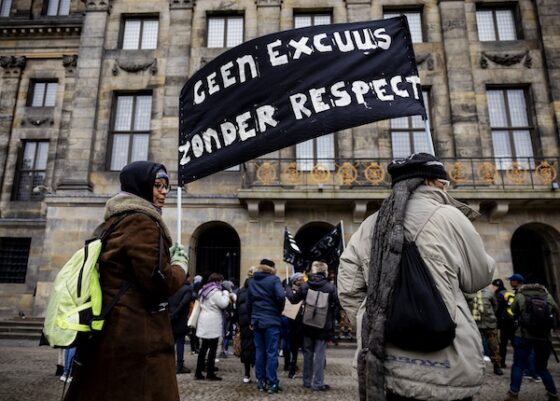Dutch PM poised to apologise for slavery, despite community criticism


Prime minister Mark Rutte will give a televised speech on the Netherlands’ role in slavery on Monday, which is widely expected to include an apology to the descendants of enslaved people.
Both Rutte and deputy prime minister Sigrid Kaag have said that Monday’s events will include a ‘significant moment’, but have not confirmed if an apology will be made.
Community groups have called for a formal apology to be delayed until July 1, when the abolition of slavery is commemorated every year. In 2023, it will be 150 years since the practice ended in the Dutch colonies, after a 10-year period of transition.
Rutte’s speech, which will begin at 3pm, is being made at the National Archive in The Hague and will reference a major report on the Netherlands as a slaving nation which recommended the state apologise for its role, broadcaster NOS said.
A number of government ministers will also be present in The Hague, while others are heading for Suriname and the six former Caribbean island colonies, where they are expected to make a similar statement on behalf of the government.
The cabinet’s plans leaked out at the end of last month and have been criticised by a range of community groups for being over-hasty. In addition, many people are angry that the decision to apologise on December 19 was taken without consulting community groups which have been campaigning on the issue.
Some also argue that the king, rather than prime minister, would be a more appropriate person to give the speech. Six organisations also went to court in an effort to have the date changed, but lost on the grounds that it was a political question.
Compensation
Despite the weeks of uncertainty about what exactly the cabinet is planning, Rutte has been adamant that compensation or reparations for the descendants of the enslaved will not be forthcoming.
The Slavery History Dialogue Group, which Rutte will refer to in his speech, is not in favour of financial compensation either, but does say there should be permanent funding to raise awareness about ‘the harmful effect’ of its impact, through education, research and art.
‘The colonial legacy that is visible in the institutional racism at the tax authorities, the police, but also in education and in the housing and labour market must be recognised and tackled,’ the Volkskrant said in its analysis of the issue.
Abolition
Slavery was finally abolished in the former colonies of Suriname and the Dutch Antilles on July 1,1863.
Slavery and the Netherlands: what you need to know
However, slaves in Suriname were only fully freed in 1873, since the law stipulated that there was to be a mandatory 10-year transition period. Owners were also paid compensation of 300 guilders for every enslaved person they released.
At its height in the 1770s, slavery generated over 10% of the gross domestic product of Holland, the richest of the seven Dutch provinces which made up the republic, according to social history researchers.
The income from the tobacco trade, sugar processing and shipbuilding was boosted by the use of slave labour used to grow crops on plantations, according to researchers at the International Institute for Social History.
Other professions, such as notaries and bankers, also benefited from slavery. As a whole, slavery generated some 5.2% of the Netherlands’ GDP – just slightly less than the proportion generated by Rotterdam port today.
Thank you for donating to DutchNews.nl.
We could not provide the Dutch News service, and keep it free of charge, without the generous support of our readers. Your donations allow us to report on issues you tell us matter, and provide you with a summary of the most important Dutch news each day.
Make a donation